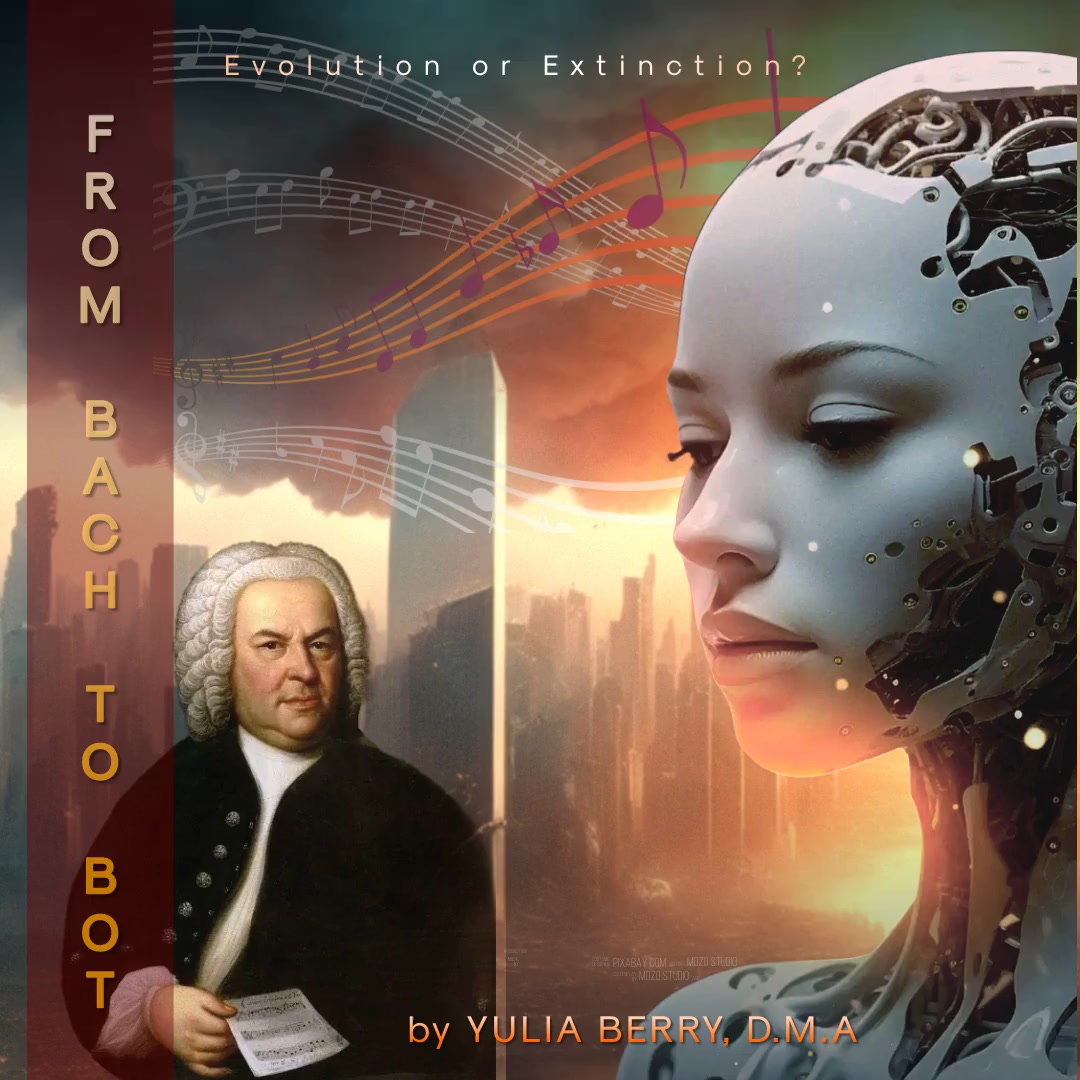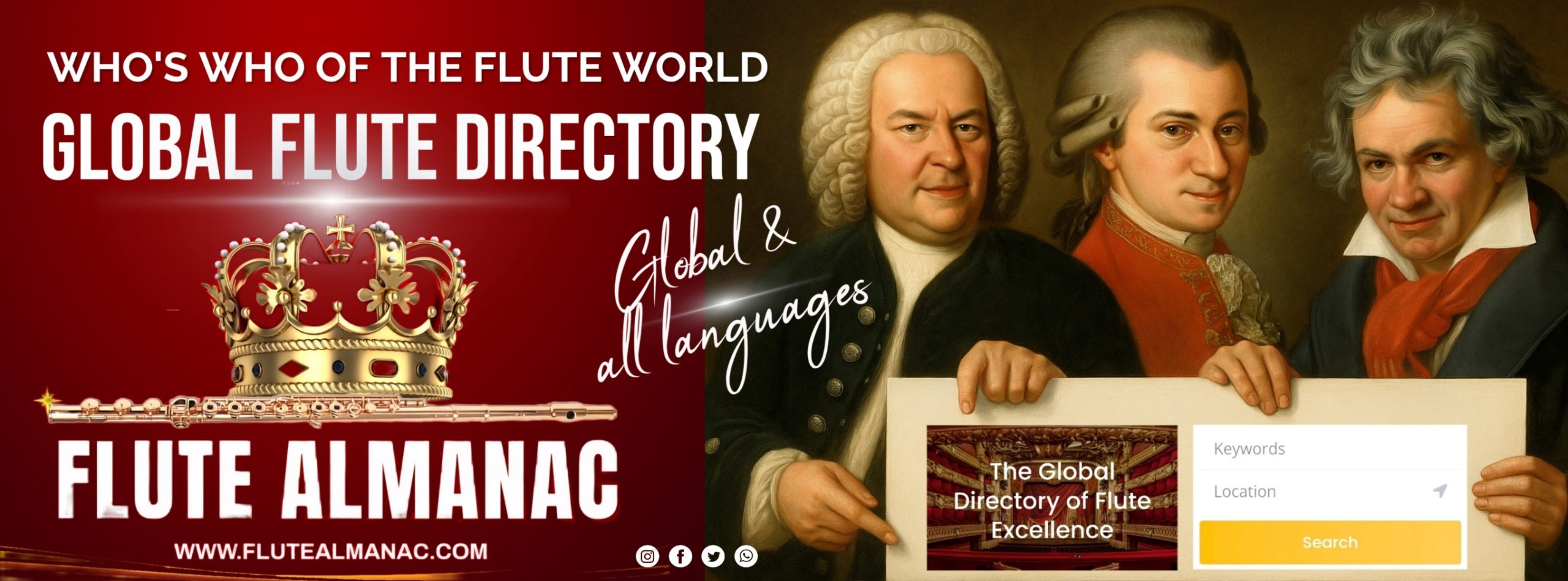
Can AI-generated music truly be considered art, or does it lack the emotional depth that comes from human experience?
by Yulia Berry
AI technologies are becoming a major part of every industry in 2023. This trend has caught the attention of creative individuals, such as writers, artists, painters, and musicians, who are now questioning whether AI might eventually replace us and render our skills unnecessary.
In the realm of music, AI can be utilized for composing, producing, analyzing, and even performing music.
Will computers take over musicians’ jobs? Don’t worry! The main reason AI won’t replace musicians is the same reason financial experts still have jobs even after the invention of the calculator. AI is meant to help do tasks faster, not take over entire jobs.
Garry Kasparov, the chess grandmaster, once commented that his defeat against Big Blue didn’t offer much insight into replicating human thought processes. To surpass him, a collaboration of computer scientists, chess experts, an extensive game library, and a machine capable of processing 200 million moves per second was required—a departure from human playing styles.
AI’s Role in Music Composition and Production
Traditionally, composing music has been a profoundly human undertaking, driven by emotion, creativity, and personal experiences.
Yet, AI-powered tools have demonstrated remarkable prowess in crafting musical compositions, echoing the styles of renowned composers or venturing into uncharted musical realms.
With machine learning algorithms analyzing extensive databases of existing music, these tools grasp models and structures, enabling the creation of original compositions.
Furthermore, AI serves as a robust ally in music production. From crafting harmonies and melodies to suggesting instrument choices and refining sound engineering, AI enhances efficiency and streamlines the production process.
Rather than replacing human creativity, AI complements it by providing fresh ideas and expediting production cycles.
AI Benefits in Classical Music
Using AI in classical music offers several benefits:
- Composition Assistance: AI can assist composers by generating musical ideas, harmonies, and melodies, helping them overcome creative blocks and explore new possibilities.
- Music Analysis: AI can analyze vast amounts of classical music compositions, identifying patterns and structures that can be valuable for both composers and musicologists.
- Personalized Recommendations: AI-driven music streaming platforms can provide listeners with personalized recommendations based on their preferences, introducing them to lesser-known classical pieces.
- Music Education: AI-powered tools can help music students learn and practice classical music more effectively, offering real-time feedback on their playing and suggesting practice routines.
- Orchestration: AI can assist in orchestration, suggesting instrument choices and arrangements for compositions, which can save time for composers and arrangers.
- Automatic Transcription: AI can transcribe handwritten or older classical music scores into digital formats, preserving historical compositions and making them more accessible.
- Music Restoration: AI can aid in restoring and remastering old recordings of classical performances, improving their sound quality and preserving cultural heritage.
- New Avenues of Creativity: AI can inspire composers and musicians to experiment with new sounds and styles, pushing the boundaries of classical music.
- Collaboration: Musicians can collaborate with AI systems to create unique, hybrid compositions that blend human creativity with machine-generated elements.
- Accessibility: AI-generated sheet music and MIDI files can be used to create accessible versions of classical pieces for people with disabilities, such as visually impaired individuals.
- Music Generation: AI can generate entirely new classical compositions, providing a wellspring of new material for musicians and ensembles to perform and interpret.
- Efficiency: AI can help orchestras and ensembles optimize their performances by providing insights into timing, dynamics, and other aspects of musical interpretation.
Overall, AI in classical music can enhance creativity, accessibility, and the overall experience for composers, musicians, and listeners alike.
Downsides of AI in classical music
While AI can offer various benefits to classical music, there are also potential downsides to its integration. Here are some specific downsides when using AI in classical music:
- Loss of Authenticity: Classical music is known for its rich emotional depth and human expression. The use of AI might lead to performances that lack the genuine emotional connection that comes from human musicians.
- Interpretation Challenges: Classical music often involves intricate interpretation and expression choices. AI might struggle to capture the subtleties and nuances required for faithful interpretation of different compositions.
- Uniqueness and Creativity: AI-generated classical compositions might lack the unique creativity and innovation that renowned composers bring to their work. The individuality of composers’ styles could be diluted.
- Overemphasis on Accuracy: While accuracy is crucial, solely focusing on technical precision through AI might overshadow the artistry and personal touch that musicians bring to their performances.
- Loss of Learning Opportunities: Relying on AI-generated accompaniments or orchestral parts might hinder students’ ability to learn how to collaborate and interact with real musicians in an ensemble setting.
- Preservation of Tradition: Classical music is deeply rooted in tradition, and AI-generated music might challenge the preservation of these traditions if it doesn’t capture the essence of the genre.
- Depersonalization: Classical music often thrives on the deep connection between performers and audiences. AI performances might lack the human element that makes live classical music experiences so impactful.
- Impact on Musicians: The increase in use of AI in music might raise concerns about the future of professional classical musicians, if AI-generated music becomes more prevalent.
- Ethical Considerations: If AI is used to imitate famous classical composers, it could raise ethical questions about whether AI-generated works should be attributed to human composers.
It’s important to approach the integration of AI in classical music with careful consideration and a balance between technological advancements and preserving the core values of the genre. AI can be a tool to aid musicians, composers, and educators, but it’s crucial to maintain the integrity and authenticity that make classical music so cherished.
Examples of AI-generated art and flute music
The AI-generated art and music featured on the YouTube channel “Cosmic Flute” possess a captivating improvisational and liberating quality. The music is full of improvisation, giving it a sense of freedom. At the same time, the visuals in the videos are really imaginative, creating a fantastic visual experience.
In conclusion, the integration of AI in classical music presents a promising avenue to elevate creativity, enhance accessibility, and enrich the overall experience for composers, musicians, and listeners. However, it’s essential to acknowledge the potential downsides that come with this technological advancement. As we explore the 10 best tools in 2024 for generating AI music, it becomes evident that careful consideration and responsible implementation are crucial to strike a harmonious balance between the benefits and challenges that AI brings to the world of classical music.
10 best tools in 2024 to generate AI music
1. Google’s Magenta Studio: Magenta Studio provides tools for music composition and generation using machine learning. It’s an open-source research project exploring how to make music and art using machine learning.
2. AIVA: AIVA (Artificial Intelligence Virtual Artist) is an AI music composition tool. It uses deep learning algorithms to compose music in various genres.
3. Ecrett Music: The AI music generator enables you to create music for videos or games, featuring a royalty-free music generator to eliminate licensing concerns. To utilize the tool, choose at least one option from Scene, Mood, and Genre before clicking “Create Music.” The tool then generates music based on your selections, providing different music each time, even with the same settings.
4. AudioCipher: AudioCipher is a DAW plugin converting text to MIDI, employing musical cryptograms to transform phrases into chord progressions and melodies. Simply input a word, select your key signature, chord type, and rhythm automation. Drag the words onto your MIDI instruments and implement your envisioned sound design. Tweak the MIDI until you achieve a result you find appealing.
5. Mubert: Mubert stands out as a groundbreaking AI music generator, crafting original music tracks within seconds. It’s free, user-friendly, and uniquely suited for business owners, content creators, and music artists alike.
6. MuseNet: MuseNet, developed by OpenAI, is a deep neural network that can generate music across various genres and styles.
7. Veed: Veed is perfect for crafting AI-generated background music tailored for your YouTube or Instagram videos. These are concise 20-second tracks designed to seamlessly loop in the background.
8. Beatoven: Beatoven accommodates both novices and experienced users with its features. To begin, just input a title for your track. This title serves as a prompt, so ensure you describe it accurately to achieve the desired results. In addition, it offers a bunch of useful customizations like changing the instruments, genre, and tempo, along with other parameters, to make the track yours by finetuning it. You also get alternate tracks for the same prompt, giving you more options to play with.
9. Soundraw: The music generator takes you through the process step-by-step, where you can apply a combination of genres, moods, and themes to create multiple songs to choose from. You can further edit each track using beginner and advanced parameters, depending on your skill level.
10. Boomy: Boomy is an AI-powered music-making platform, partially free, that empowers you to effortlessly create your own original songs. Tailored for both beginners and experienced musicians, it provides a variety of features to streamline the music-making process
Yulia Berry
www.yuliavberry.com
Yulia Berry is the founder of Flute Almanac, The Babel Flute, and the New England Flute Institute. A highly experienced flutist and mentor, she holds a Doctor of Music Arts degree from the Saint Petersburg State Conservatory (Russia).
Renowned for her virtuosity and expressive playing, she has performed as a soloist and chamber musician worldwide. An expert in flute pedagogy, she is known for her innovative teaching methods that emphasize technique, musicality, and artistry.
She has written extensively on the flute’s connection to art, culture, and history across different eras.









Brava, Yulia, ho voluto leggere per primo il tuo articolo. E’ molto interessante e ricco di spunti di riflessione.
Grazie!